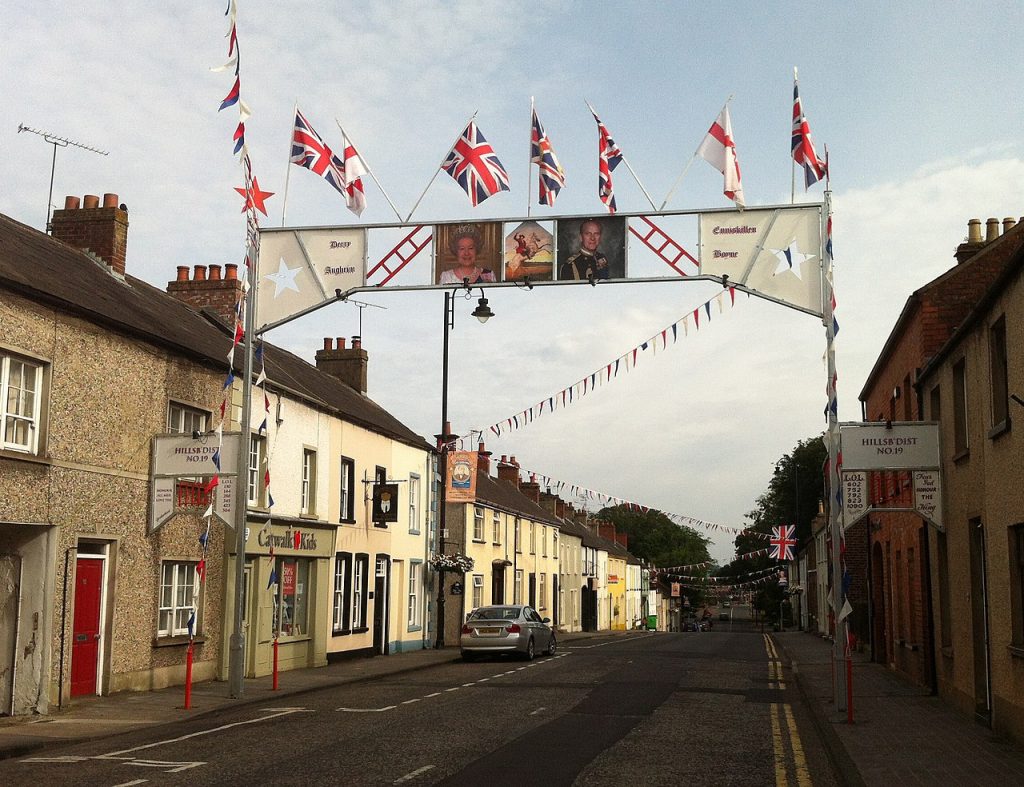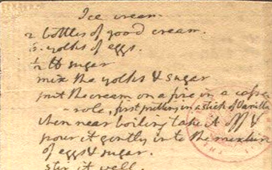In 1975, the American sociologist Michael Hechter published a book on the evolution of the United Kingdom; fifty years on, its insights are strikingly pertinent to the travails of the post-Brexit union. Internal Colonialism (1975) applied the theory of ‘the political incorporation of culturally distinct groups by the core’ to the case of British national development. Hechter’s starting point was simple: why was it that the Celtic fringe (i.e. Ireland, Scotland, Wales) continued to be quite different from the core (i.e. England) in terms of economic development, social advance, cultural identity and political representation?
The question was a weighty one, not least because the dominant theories in social science (such as functionalism) would assume that the integration of these nations into the United Kingdom would have worn down such differences over time. Taking macrolevel historical evidence across a period of centuries and employing multivariate statistical analysis, Hechter found the theory of internal colonialism to offer a convincing explanation for the socio-political condition of the UK’s periphery.
Such conditions included the Troubles in Northern Ireland – the violent conflict which Hechter only briefly and rather bluntly referred to. Contemporaneous social scientific analyses of the Troubles tended either to be outspokenly partisan or punctiliously data-focused as a means of remaining ‘neutral’. Hechter’s book fell into neither trench, reaching conclusions that were explosively political (namely, that the root of the problem was English colonialism) while meeting high standards of scholarly rigour.
Half a century on, much has changed. The Troubles ended some thirty years ago, although the conflict persists in the form of an institutionalized and entrenched consociational divide. Northern Ireland, Scotland and Wales have their own legislatures and executives, key decision-making powers having been devolved to them from Westminster in 1998. UK membership of the European Union since 1973 helped create the conditions that made devolution possible: ensuring a common regulatory framework for all parts of the UK while enabling autonomy within it.

Unionist flags in Hillsborough, County Down. Image: Keith Ruffles / source: Wikimedia Commons
The ‘Brexit’ referendum in 2016 upset this delicate constitutional balance. While Northern Ireland and Scotland voted to remain in the EU, English voters’ predominant wish to the contrary produced an overall UK majority for Leave. And so, the UK Government started on a pathway to a so-called ‘hard Brexit’ that contradicted the expressed wishes of the devolved governments while worsening the domestic consequences of leaving the EU.
Hechter’s ‘internal colonialism’ theory of the British state places the UK Government’s management of the post-Brexit Union in sharp historical relief. This goes particularly for Northern Ireland, which in Hechter’s words was organized ‘around the establishment of a colony of English and Scottish settlers’. Northern Ireland, readers will recall, was formed from six Ulster counties by the partition of the island of Ireland set up by the UK’s Government of Ireland Act of 1920. Compare Hechter’s characterization of the situation at the time of partition with the region’s post-Brexit predicament:
Identified by the Catholics of Ulster as colonial settlers who had stolen the lands of their ancestors, the Orangemen clung to Union with Great Britain as if it were a lifeline … Thus, even though Northern Ireland was more economically disadvantaged than any other peripheral region, she became the greatest supporter of the Conservatives and their ideology because of this ethnic imperative. Like the white trash [sic] of the southern United States – many of whom, by chance, are of Ulster ancestry – the Orangemen were despised by those socially beneath them, and disparaged by the very group they identified with so strongly. Thus they suffered the peculiar disabilities of the man in the middle who, denied the millenarian eschatology of the truly oppressed, must content himself with a self-definition as merely second-best.
Hechter’s theory of internal colonialism explained how Northern Ireland came to be both so under-developed and so divided, afflicted with the poor decision-making of a dominant group wracked with insecurities. Today, Protestants are no longer in a majority and the future of the region hangs in the balance. Yet the centre-periphery dynamics remain much the same.
There is a sense, perhaps, that Northern Ireland is in a constant gloaming or twilight zone: a realm that is never quite in light and ever close to darkness. For unionists this sense of precariousness is a reason to cling closer to the ‘lifeline’ of England; for nationalists, it is an incentive to seek unification with Ireland. Post-Brexit, the haze of the twilight has taken on a new intensity, ironically due to the actions of those who purport to be the Union’s strongest champions.
Having committed to a sharing of fates in a ‘confidence and supply’ arrangement after the snap election of 2017, the UK’s Conservative Government and Northern Ireland’s Democratic Unionist Party (DUP) remained in an uneasy pasodoble in the aftermath of Brexit. The insecurity of both, and their mutual distrust, is reflected in two developments for which they were jointly responsible, and which manifest the harm that continues to be caused by internal colonialism.
A region held to ransom
Having campaigned to leave the EU, the DUP was particularly enraged that the UK–EU Withdrawal Agreement contained a Protocol that de facto kept Northern Ireland in the EU’s single market for goods and in the EU’s customs union. Of particular concern to the DUP was the fact that the Protocol enabled free movement of goods across the Irish land border, while necessitating checks and controls on goods entering Northern Ireland from Great Britain. It had a point.
One of the legacies of internal colonialism is Northern Ireland’s trade dependency on Britain, for which continuation of the region’s free access to the EU’s single market after Brexit was poor compensation. But the DUP’s objections focused primarily on the constitutional rather than the economic implications, and particularly what it meant for Unionism that the UK Government had apparently chosen to prioritize North/South over East/West ties. In protest, the party exercised its powers of veto over the functioning of the Assembly and Executive after the 2022 Assembly election, in which it had lost its status as the largest party and holder of the position of First Minister. As a result, the governance of Northern Ireland was once again placed in the hands of its civil servants.
The subsequent lack of legislation, oversight, scrutiny, accountability and decision-making in Northern Ireland would never have been tolerated elsewhere in the UK. But in Northern Ireland it was made possible by deep social and political divisions, which prevented a consensus from forming – another legacy of internal colonialism. Most shocking was that the UK Government used the absence of devolved government to make major cuts in public services and spending in the region. The Head of the Civil Service in Northern Ireland, Jayne Brady, warned that the budget outlined by the Conservative Secretary of State for Northern Ireland, which required some 10% reduction in departmental spending in the region, would cause ‘enduring harm to public services, society and economy’.
The situation was made worse by the failure of the UK Government to issue any specific direction to civil servants, meaning they were effectively acting as ministers – and having to take decisions regarding cutbacks – without political legitimacy. In defence of the Government, the Secretary of State commented that, ‘the difficulties that Northern Ireland departments face are a result of tough decisions not having been taken by elected representatives in Northern Ireland’. This is but a modern expression of the ‘haughty culture’ of central authorities that helps explain the ‘persistence of backwardness’ in Northern Ireland.
Internal colonialism is evident in this situation in several ways. First, in the exertion of England’s ‘great influence on the economy of peripheral regions, through its banks and ministries’, combined with the failure of the core to offer sufficient economic support for the periphery. Second, the UK constitutional failure to allow the region adequate political representation in Westminster during ‘normal’ times compounded the vacuum of democracy when the Assembly and Executive were not functioning. Third, the Government’s eschewing of responsibility for both the economic and the political effects of its decisions.
Most egregious, however, is the pretence that the type of democratic processes that are assumed to work in England apply in Northern Ireland. The Secretary of State for Northern Ireland claimed that the solution to the problem of the governance gap and budget cuts ultimately lay with the people of Northern Ireland, whose responsibility it was to impress on their politicians ‘the importance of returning to Stormont and forming an executive’.
Such a remark could only either come from wilful ignorance or shameless gaslighting. The power-sharing arrangements at work in Northern Ireland enable either of the two largest parties to veto their operation; what is more they are explicitly designed to ensure that the will of the majority cannot override the will of the minority, especially when the matter in question relates to cultural identity.
The UK Government took very seriously the DUP’s claim that its objections to the Protocol were on the grounds of cultural or ethnic identity; more to the point, it described the DUP’s objections as having been ‘legitimately expressed’. So much so that the Government took the exceptional course of engaging in negotiations with that party, to the exclusion of all others and the Irish Government (co-guarantor of the 1998 Agreement). The outcome of those negotiations – the Safeguarding the Union command paper – may be viewed as a pristine vestige of internal colonialism.
Safeguarding the Union
A UK–EU agreed revision of the Protocol to soften its effects (the ‘Windsor Framework’ of February 2023) failed to offer enough assurance to the DUP to allow Stormont to return. Nevertheless, it was increasingly apparent that the DUP’s boycott, while endorsed by the vast majority of their voters, risked winning the battle and losing the war. Support for the Union among the wider population was steadily falling during this time, while Irish unification was appearing more attractive almost by default.
The Safeguarding the Union deal that arose from the DUP–UK Government negotiations needed to give cover to the DUP to return to power-sharing. Without further EU concessions, however, the only impact any deal could make on the post-Brexit situation for Northern Ireland was limited to what was in the gift of the UK Government to offer. The resulting document is the most pro-unionist official document produced since the peace process began, its reliance on tub-thumping rhetoric reflecting the limitations of the UK Government’s power and unionism’s trust in it. In Safeguarding the Union, the UK Government went beyond supporting Northern Ireland’s place in the UK to promising to secure it:
The measures will copper-fasten Northern Ireland’s integral place in the United Kingdom, fulfilling the Acts of Union 1800; strengthen the UK’s internal market; and safeguard new protections into the future … The Government is clear that it will countenance no diminution in Northern Ireland’s place in the Union at all – partial or total – except in accordance with the principle of consent.
The unionist fundamentalism exemplified in this and other passages contradicts the approach taken by the British and Irish governments and the Northern Ireland parties that made peace possible in 1998. The assumptions about what is good for Northern Ireland are entirely zero-sum (as if strong relations between Northern Ireland and Ireland are automatically detrimental to Northern Ireland’s relations with Britain) and Union-focused. And it is brazen in trammelling some of the most carefully-nuanced principles of the 1998 Belfast/Good Friday Agreement. The irony is that in demanding such reassurances from the centre (and from a Government willing to put diplomatic relations at risk to provide them), political unionism in Northern Ireland merely underscored the peripherality of its culture in the wider Union.
The UK Government’s management of the domestic fallout of Brexit has compounded problems in cultural integration, economic integration and political integration in the Union. Despite the grand promises and one-sided assertions to reassure Ulster unionism, few would disagree that this form of internal colonialism is useless to the centre and ultimately doing little good to the periphery. But, post-Brexit, indulging those who increasingly depend on English support to wield even a negative power over a peripheral cultural group may carry a nostalgic appeal. England’s first colony is now its last; proof that England still matters somewhere other than in England.
And so it is that Northern Ireland continues to linger in twilight, where inequalities, injustices and non-democracy are allowed to fester – the foetid fruits of a friendly colonizer’s neglect.















